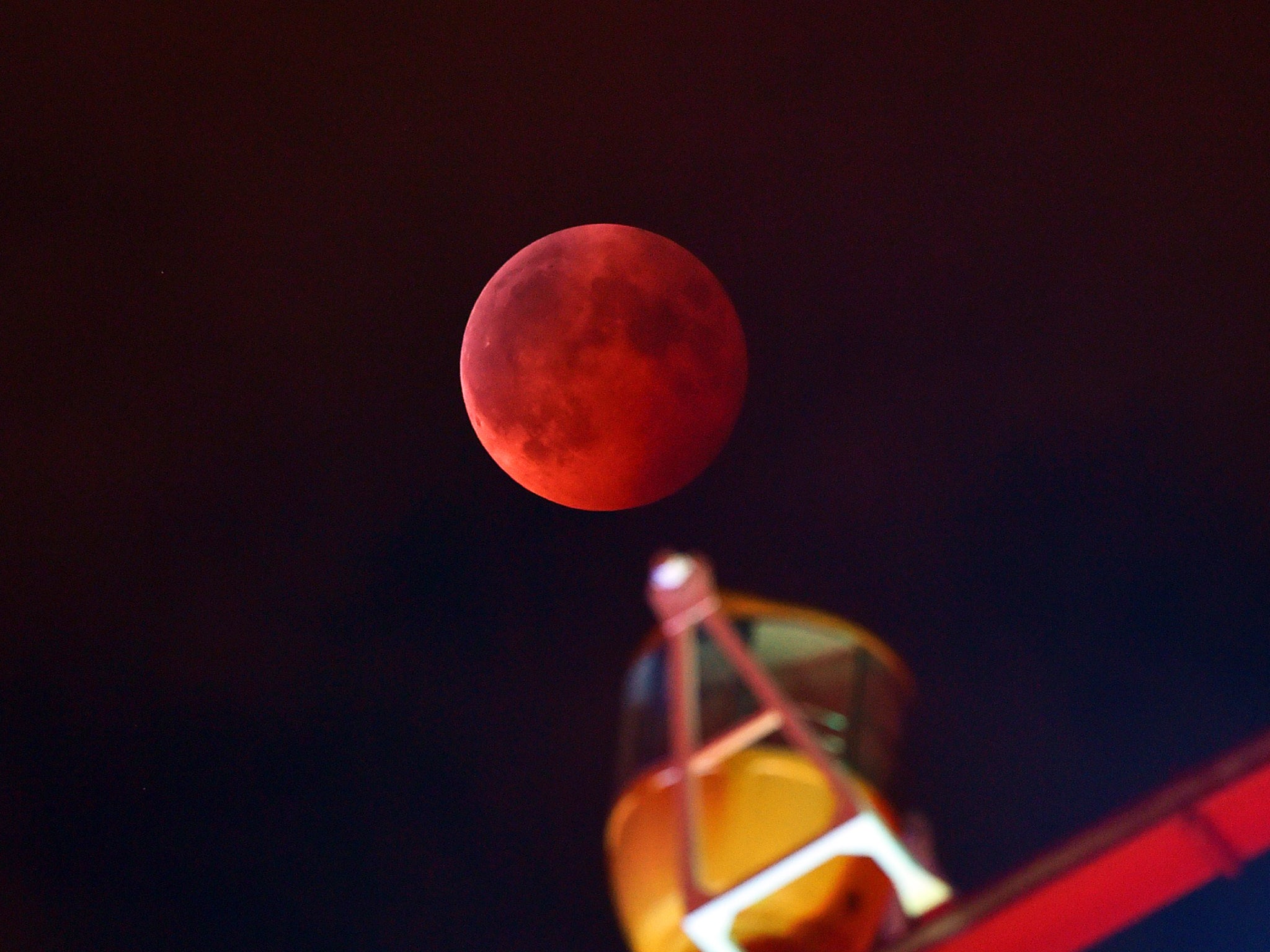Lunar eclipse and Supermoon: strange events in the night sky will be stunning but not the end of the world, says Nasa
Despite claims of the apocalypse, ‘the only thing that will happen on Earth during an eclipse is that people will wake up the next morning with neck pain because they spent the night looking up,’ said a Nasa scientist

There are going to be strange, wonderful things happening in the night sky at the end of this month, according to Nasa. But they’re not going to be the end of the world.
The night of September 27 will see the first combination of a supermoon and a lunar eclipse — meaning that evening will have both the brightest, and then the darkest, moon of the year. But some have worried that the very unusual events might be a sign that the world is about to end.
The strange events won’t actually make any difference to life on Earth, or on the moon itself. Instead, they’re the result of the way the two rocks — and the sun — are lining up with each other.
"The only thing that will happen on Earth during an eclipse is that people will wake up the next morning with neck pain because they spent the night looking up," said Noah Petro — deputy project scientist for the Lunar Reconnaissance Orbiter at NASA’s Goddard Space Flight Center in Greenbelt, Maryland — said in a statement.
The strange events will happen because of the moon’s oval orbit, which means that at some times it is closer to the Earth. When it’s closer, it’s referred to as “perigee”, and the opposite is “apogee”.
When the moon is it at perigee, it’s 31,000 miles closer than at apogee. That makes it look 14 per cent bigger and 30 per cent more bright.
Though the moon’s closeness does have some effect on things like tides, it’s unlikely to trigger or be a sign of an apocalyptic event. The moon itself hasn’t actually changed.
But the supermoon will then be followed by a lunar eclipse — the fourth in a row, which some are calling a blood moon. The Earth will move between the sun and the moon, so that a shadow will be entirely cast over it — sending the previously super-bright moon into darkness.
Lunar eclipses aren’t rare — they happen about twice a year — and again make little difference to life on Earth. But they have long been viewed as a sign of momentous occasions.
This year, the same thing has happened, in part because the the lunar eclipse also marks the fourth eclipse in the "lunar tetrad" — an unusual line-up of eclipses. Some people have taken to calling that the blood moon — and arguing that it is a sign of the coming end of the world.
The same thing happened earlier this year, during the big solar eclipse, when Christian pastors and other people said that the events tied in with prophecies about the End Times.
Before humanity had developed systems for predicting the movement of the objects in our galaxy, civilisations such as the Incans and Mesopotamians saw eclipses as unpredictable and terrifying events. But now scientists can predict them with huge accuracy — and we’re able to say when they’re going to happen for the next thousand years.
The two occurring at once is obviously far more rare than either of them happening. It last happened in 1982, and won’t happen again until 2033.
"It’s just planetary dynamics,” said Petro. “The orbit of the moon around Earth is inclined to the axis of Earth and the orbital plane of all these things just falls into place every once in a while.
“When the rhythms line up, you might get three to four eclipses in a row or a supermoon and an eclipse happening."
Join our commenting forum
Join thought-provoking conversations, follow other Independent readers and see their replies
Comments